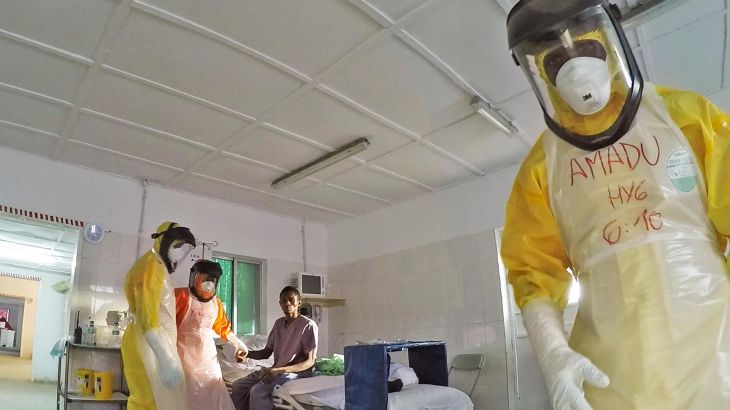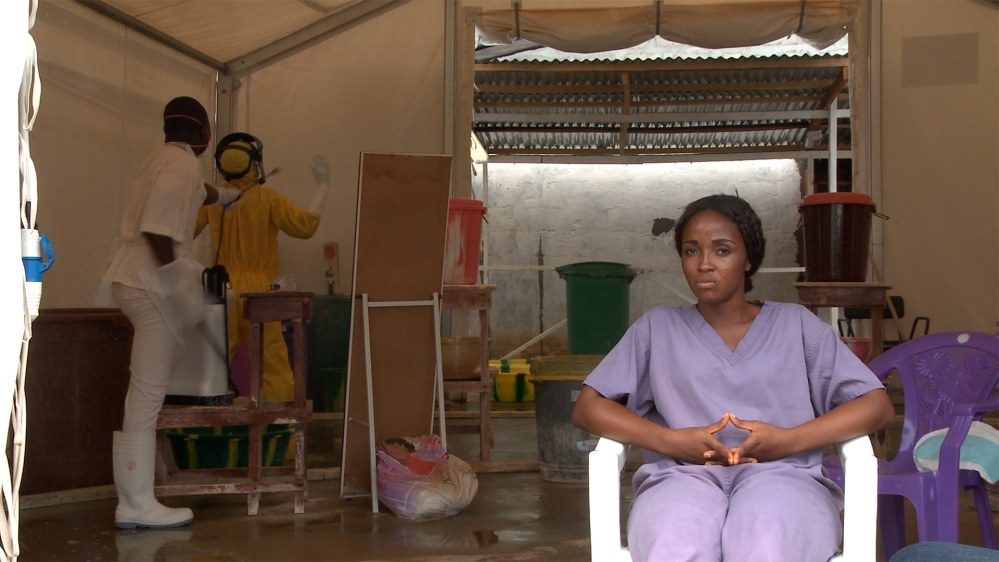
Survivors: Inside Sierra Leone’s Ebola epidemic
An intimate look at the fight to contain the 2014 Ebola outbreak through the lives of three Sierra Leoneans.
Sierra Leonean filmmaker Arthur Pratt documents the 2014 Ebola outbreak from its earliest days to its end, filming the health workers and residents living on its front lines.
Among them are Mohamed Bangura, the senior ambulance driver at the country’s main ambulance dispatch location and Margaret Sesay, a nurse who works at the emergency Ebola treatment centre in the capital of Freetown, caring for some of the sickest patients.
Keep reading
list of 4 itemsUganda declares end of Ebola after 4-month outbreak
Uganda’s Ebola outbreak nearly under control, says Africa CDC
Ebola vaccines produced lasting antibodies during trial: Studies
Pratt films families and communities impacted by the virus, misunderstandings between international NGOs and the communities they serve, and simmering political tensions that linger from the country’s decade-long civil war.
He also shares stories of hope and faith, as friends, families and communities lift each other up throughout the crisis.

____________________________________________________________________________________
FILMMAKER’S VIEW
My name is Arthur Pratt and I am a Sierra Leonean. I am a pastor, a filmmaker, a husband and a father. During the Ebola outbreak, which started in 2014, my country of Sierra Leone received perhaps more international press attention than ever before. This attention, however, failed to create a complete picture of how my people were affected by the disease.
The role that African nationals played in combating the outbreak was grossly underreported and, lacking a basic understanding of local culture and belief systems, many times reporters would make false assumptions regarding why people did not heed medical advice. This misunderstanding goes a long way towards defining how the world in turn views who we are as modern Africans.
Sierra Leone is a complicated place full of joy and pain, beauty and challenges. Just like most other places in the world, it is full of people who love their families and just want the best for the people that they love. However, we cannot deny that Sierra Leone is also a place where our healthcare system is insufficient and fragile, our leadership lacks transparency and has proven susceptible to corruption, and the level of disorganization in our country has been crippling. All of these factors came into play during Ebola and all are on display in Survivors.
The issue of trust is at the foundation of any collaboration and there were lessons learned during this outbreak. Local communities had lost trust in their governments and international aid workers and they, in many ways, lacked an understanding of the communities they were trying to serve. This severely impacted the effectiveness of early public health campaigns, training efforts and collaborative working environments.
With Survivors, we want the world to see and feel what the Ebola outbreak was like from the perspective of Sierra Leoneans. Our film is not just to show the world what happened in Sierra Leone during the Ebola outbreak and how we survived it, but rather to bring our own perspective to an issue that will be used to define us and our country for a long, long time. I am very proud of how this film was made. I am thankful for all the members of our film collaborative here at the WeOwnTV Freetown Media Centre and for the support and guidance from our team in the US. It was a positive collaboration based on mutual trust and respect between all members.